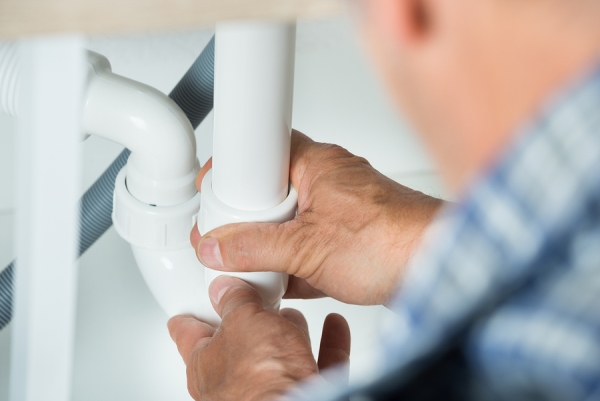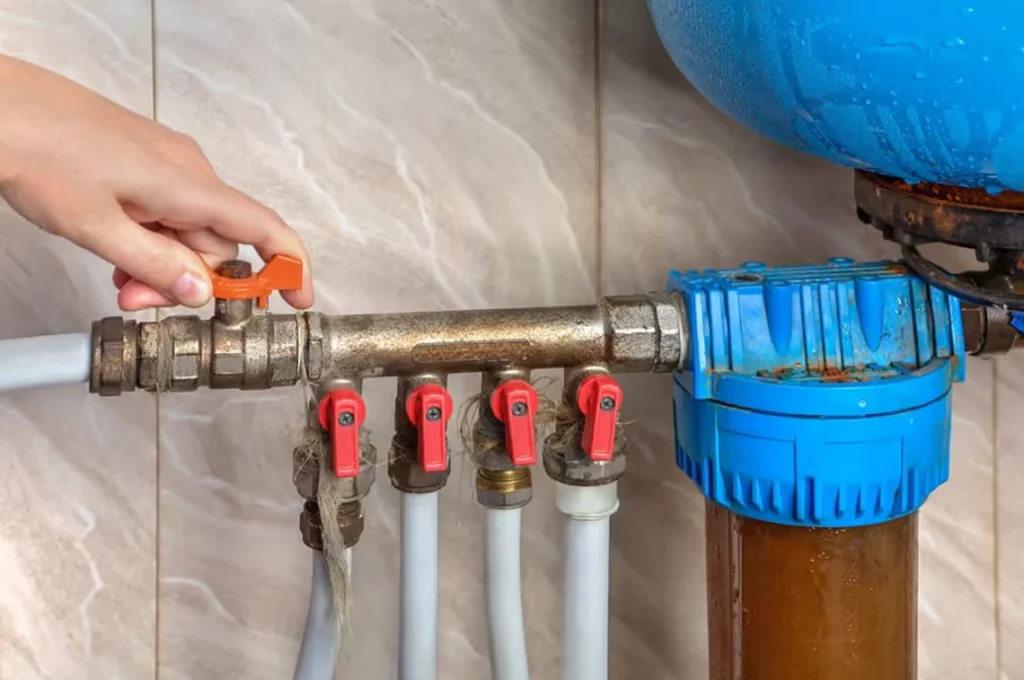Every person may have their own individual thinking involving Expert Tips for Managing a Plumbing Emergency Until Help Arrives.

Pipes emergencies can strike at any moment, causing tension and possible damage to your home. Whether it's a ruptured pipeline, a blocked drainpipe, or a dripping faucet, understanding just how to manage the circumstance till a specialist plumbing shows up can conserve you from further problems. This post provides important emergency situation pipes tips to assist you alleviate damages and reclaim control throughout a pipes situation.
Turn Off the Water Supply
The very first step in any plumbing emergency is to shut off the water supply. For localized issues, such as a dripping tap or commode, switch off the shutoff near the component. When it comes to a significant leakage or ruptured pipe, locate your home's major water shut-off shutoff and turn it off right away. Knowing the area of these shutoffs in advance can save valuable time throughout an emergency.
Address Tiny Leaks with Temporary Repairs
Small leakages can rapidly come to be considerable troubles if left untreated. Use these short-term fixes until specialist aid shows up:
- Pipe Tape or Epoxy Putty: Apply waterproof tape or epoxy putty to temporarily secure the leakage.
- Rubber and Clamp Method: Cover an item of rubber or an old internal tube around the leakage and protect it with a pipe clamp or duct tape.
- Containers or Towels: Place buckets under the leak to contain water and protect against damage to flooring or furnishings.
- While these solutions aren't irreversible, they can help reduce water loss and damages.
Unclog Drains Pipes Securely
A blocked drainpipe can be a discouraging and messy problem. Here's exactly how to tackle it: - Use a Bettor: For sinks or commodes, a plunger can usually remove minor blockages. Guarantee you use the proper kind of plunger for the component.
- Hot Water and Recipe Soap: For grease-related blockages, put a mix of hot water and dish soap away to separate the grease.
- Avoid Chemical Drain Cleaners: While tempting, chemical cleansers can create even more harm than good, especially to older pipes.
- If these methods don't work, avoid using excessive force, as it may aggravate the clog.
Take Care Of Overflowing Toilets
An overflowing toilet can trigger instant turmoil. Below's what you need to do: - Stop the Water Flow: Get rid of the tank lid and weigh down on the flapper shutoff to stop water from going into the dish. Switch off the water supply to the bathroom if essential.
- Dive Gently: Utilize a commode plunger to remove the clog, but prevent aggressive plunging, which can trigger spilling or more damage.
- Have the Spill: Use towels or a wipe to clean up water promptly to avoid floor covering damages.
Turn off Your Hot Water Heater
In specific emergency situations, such as a burst pipeline, it's a good idea to shut down your water heater. This protects against overheating or damages to the unit when water stops moving. Turn off the power supply to the hot water heater (electric or gas) and let it cool to prevent possible hazards.
Briefly Stop a Ruptured Pipeline
A burst pipeline can lead to substantial water damage in mins. To reduce the concern:
- Clamp or Wrap the Pipeline: Use a pipeline clamp, rubber, or duct tape as a short-lived seal.
- Divert Water Circulation: Preferably, draw away the water into a bucket or container to limit damages to surrounding locations.
- Keep the Location Dry: Use towels or a wet/dry vacuum to get rid of standing water.
- Call an expert plumbing professional right away to attend to the issue completely.
Handle Frozen Pipeline Very Carefully
In chillier environments, icy pipes are a typical emergency situation. If you think a frozen pipeline: - Switch off the Water: Shut down the main supply of water to avoid a ruptured pipeline.
- Defrost Gradually: Make use of a hairdryer, hot pad, or warm towels to thaw the pipe slowly. Prevent open fires or severe warmth, as these can harm the pipeline.
- Inspect for Leaks: Once the pipe is thawed, check for fractures or leaks prior to transforming the water back on.
Stop More Damages
Taking fast activity to decrease damage can conserve you time and money in the long run. Here's how:
- Move Valuables: Remove furniture, electronics, and other items from the affected area.
- Use Sandbags: For flooding scenarios, place sandbags around the area to reroute water.
- Shut down Power: If water has actually gotten to electric outlets or devices, switch off the electrical energy to stop shocks or fires.
. Have an Emergency Situation Plumbing Set
Prepare a fundamental plumbing emergency kit to manage small problems successfully. Your package needs to consist of:
- Flexible wrench
- Plumbing professional's tape
- Pipeline secures
- Towels and dustcloths
- A bettor
- Epoxy putty
- Pail.
- Having these devices accessible can make a substantial distinction in your capacity to take care of emergency situations.
Know When to Call a Specialist.
While quick fixes can aid momentarily, specific plumbing concerns need instant specialist interest. Call a plumbing if:. - A ruptured pipeline causes extensive flooding.
- Drains pipes or bathrooms remain clogged up in spite of your efforts.
- You see consistent leaks or water stress issues.
- Your hot water heater is leaking or malfunctioning.
- Without delay calling a professional makes certain the problem is dealt with appropriately and stops further difficulties.
Final thought.
Pipes emergencies can be overwhelming, however with the right expertise and tools, you can take care of the circumstance properly up until aid shows up. By turning off the water system, addressing little leakages, and using short-lived fixes, you can decrease damage and maintain your home safe. Remember, these ideas are temporary services; constantly speak with a qualified plumber to manage the root cause of the issue. Prep work and quick thinking are your finest allies in any type of pipes emergency situation.
8 Helpful Tips for Managing Plumbing Emergencies at Home
If your plumbing system hasn’t failed once, wait for it because almost everyone has a story to tell. Sometimes, it could be simple emergencies such as a leaking pipe, a blocked cistern, or even a big burst pipe. In situations like this, you need to have some handy tips to save you some money and from possible damages.
Take care of minor issues early.
Sometimes, you could have avoided an emergency by taking proactive measures while it was still early. Some major plumbing emergencies can be a result of an ignored minor issue. We recommend that you have items like plumbing tapes and other related items. A plumbing tape can allow you to manage minor leaks before the plumber arrives.
Cut off the water supply.
This tip is essential in almost any type of leakage problem. For problems like minor leakages in the toilet or kitchen, turn off the supply that takes water to the affected pipes. If the leakage is a major pipe, you must shut off the supply valve to the entire building. This will help you avoid flooding your home and neighbors if you share a flat.
Know your plumbing system
Folks typically move into a new apartment without understanding the water supply around the building. This can prove disastrous if a water emergency arises and the plumber is far away. The previous tip will prove useless if you don’t practice this one. More importantly, know where your water shut-off valve is located – you’ll need that knowledge to prevent potential home floods.
Have some common handy tools
There are lots of plumbing emergencies that you can handle without hiring a plumber. That’s why you must keep some tools available always. Some tools that you can use to fix simple plumbing emergencies easily include plumbing tapes, screwdrivers, thread seal tapes, plungers, pliers, tape measures, and rubber gloves.
Insulate your pipes from cold
You’ll save yourself from many plumbing expenses if you protect your water pipes from the cold. This is because of the harmful effects that cold weather can have on your pipes. During winter, your pipes can burst from being overly expected to freezing temperatures. So, make sure insulators are there to keep the pipes working correctly.
Avoid practices that will clog your toilet.
Many people indulge in practices that can damage the plumbing system of the entire building. One of these is when they use their toilet to dispose-off garbage. They flush all kinds of things, such as paper towels, bandages, hairs, female sanitary products, etc., down the toilet. This will block your toilet in the long run, incurring unnecessary expenditures. Dump such waste in the trash instead.
Check your dials regularly.
Sometimes, there could be leakages in your home without noticing them in time. So, constantly monitor your water meter dial. If the dial is reading when there is nobody using water, this is an indicator that there is leaking. Check for leaks immediately. Call a plumber as soon as possible if you can’t find any.
https://www.constructionplacements.com/8-helpful-tips-for-managing-plumbing-emergencies-at-home/

I hope you liked our piece about What to Do While Waiting for an Emergency Plumber. Thanks a lot for finding the time to browse our piece of content. Be sure to set aside a second to promote this page if you enjoyed it. I cherish reading our article about What to Do While Waiting for an Emergency Plumber.
Click On This Link
Comments on “Critical Plumbing Solutions: Actions to Follow Until A Plumber Arrives”